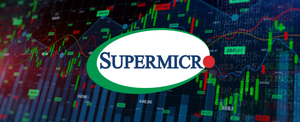NEW YORK, July 15, 2025 (GLOBE NEWSWIRE) -- Unlimited and its CEO and CIO, Bob Elliott, today rolled out two new actively managed ETFs: the Unlimited HFMF Managed Futures ETF (HFMF) and the Unlimited HFEQ Equity Long/Short ETF (HFEQ), offering investors exposure to managed futures and equity long/short hedge fund strategies, respectively. These latest additions to the Unlimited lineup align with Unlimited’s mission to provide investors with access to transparent, liquid, and cost-effective hedge fund-style returns. These new strategies will allocate across a diversified basket of ETFs and exchange-listed futures contracts, adjusting dynamically based on evolving market conditions.
Today’s launch expands Unlimited’s ETF roster to cover the primary hedge fund strategy sectors. “With the addition of our Managed Futures and Equity Long/Short strategies, Unlimited now offers complementary strategies to help achieve diversification in a wide range of investor portfolios,” said Mr. Elliott. “Deploying these strategies in the ETF wrapper, which offers intraday liquidity, affords the manager flexibility to adjust through volatile markets.”
Each of Unlimited’s sector ETFs were designed to offer a volatility target aligned with equity markets as an investor-friendly way to add the diversification features of alternatives to a balanced portfolio:
- Unlimited HFMF Managed Futures ETF – trend-following approach that seeks to generate alpha with low expected correlation to broad bond and equity markets.
- Unlimited HFEQ Equity Long/Short ETF – equity-focused strategy that takes long and short positions across equity sectors, factors, and geographies, aiming to generate alpha relative to broad equity market exposure.
- Unlimited HFGM Global Macro ETF – seeks to capitalize on global market mispricing opportunities spanning currency, fixed income, equity, credit and exchange rate markets.
Over time, high fees and inefficient tax structures in hedge funds erode returns, and top tier private funds are often inaccessible to the majority of investors. Unlimited developed proprietary machine learning technology to analyze near real-time hedge fund investment returns and efficiently replicate the underlying exposures while maintaining an expense ratio significantly lower than the standard “2 & 20” hedge fund fee model.
Unlimited’s ETFs are managed by Mr. Elliott, former investment committee member at Bridgewater Associates, and Bruce McNevin, co-founder and Chief Data Scientist at Unlimited. Mr. McNevin brings extensive experience in quantitative modeling and data science.
For more information on Unlimited HFMF, HFEQ, HFGM and HFND please visit https://www.unlimitedetfs.com/.
About Unlimited
Founded in 2022 by Bob Elliott, Bruce McNevin and Matt Salzberg, Unlimited is an investment firm using proprietary technology to create strategies that offer lower-cost access to 2 & 20-style alternative investment strategies, such as hedge funds, to a wide range of investors. Mr. Elliott has built innovative hedge fund strategies for more than two decades, including at Bridgewater Associates, the world’s largest hedge fund. Mr. McNevin is a Professor of Economics at New York University and has held various data science positions at hedge funds Clinton Group and Midway Group, along with positions at Bank of America and BlackRock. Mr. Salzberg is a Co-Founder and Chairman of various companies, including Unlimited. Learn more at unlimitedfunds.com.
Media Contacts:
| Sarah Lazarus | Zach Kouwe |
| Dukas Linden Public Relations | Dukas Linden Public Relations |
| +1 617-335-7823 | +1 551-655-4032 |
| sarah@dlpr.com | zkouwe@dlpr.com |
Before investing you should carefully consider the Fund’s investment objectives, risks, charges and expenses. This and other information is in the prospectus. A prospectus may be obtained by visiting www.unlimitedetfs.com. Please read the prospectus carefully before you invest.
Important Risks
Underlying ETFs Risks. The Fund will incur higher and duplicative expenses because it invests in Underlying ETFs. There is also the risk that the Fund may suffer losses due to the investment practices of the Underlying ETFs. The Fund will be subject to substantially the same risks as those associated with the direct ownership of securities held by the Underlying ETFs.
Management Risk. The Fund is actively managed and may not meet its investment objective based on the Sub-Adviser’s success or failure to implement investment strategies for the Fund.
Machine Learning, Model and Data Risk. The Fund relies heavily on proprietary “machine learning” selection processes. In addition, the composition of the Fund’s portfolio is heavily dependent on proprietary quantitative models as well as information and data supplied by third parties (“Models and Data”).
Volatility Risk. The Fund seeks to achieve a higher level of volatility than its target hedge fund industry sector, which may result in substantial price fluctuations over short periods. As a result, the value of the Fund’s investments may rise or fall significantly, and investors should be prepared for increased levels of volatility compared to traditional
equity funds.
Commodity Risk. Underlying ETFs that invest in the commodities markets may subject to greater volatility than investments in traditional securities.
Derivatives Risk. The Fund’s or an Underlying ETF’s derivative investments have risks, including the imperfect correlation between the value of such instruments and the underlying assets or index; the loss of principal, including the potential loss of amounts greater than the initial amount invested in the derivative instrument; the possible default of the other party to the transaction; and illiquidity of the derivative investments.
Emerging Markets Risk. The Fund may invest in Underlying ETFs that invest in securities issued by companies domiciled or headquartered in emerging market nations. Investments in securities traded in developing or emerging markets, or that provide exposure to such securities or markets, can involve additional risks relating to political, economic, currency, or regulatory conditions not associated with investments in U.S. securities and investments in more developed international markets.
Fixed Income Securities Risk. The Fund may invest in Underlying ETFs that invest in fixed income securities. The prices of fixed income securities may be affected by changes in interest rates, the creditworthiness and financial strength of the issuer and other factors. An increase in prevailing interest rates typically causes the value of existing fixed income securities to fall and often has a greater impact on longer-duration and/or higher quality fixed income securities.
Foreign Securities Risk. Foreign securities held by Underlying ETFs in which the Fund invests involve certain risks not involved in domestic investments and may experience more rapid and extreme changes in value than investments in securities of U.S. companies.
Futures Contracts Risk. The Fund or Underlying ETFs may invest in futures contracts.
Risks of futures contracts include: (i) an imperfect correlation between the value of the futures contract and the underlying asset; (ii) possible lack of a liquid secondary market; (iii) the inability to close a futures contract when desired; (iv) losses caused by unanticipated market movements, which may be unlimited; (v) an obligation for the Fund or an Underlying ETF, as applicable, to make daily cash payments to maintain its required margin, particularly at times when the Fund or Underlying ETF may have insufficient cash; and (vi) unfavorable execution prices from rapid selling.
New Fund Risk. The Fund is a recently organized management investment company with no operating history. As a result, prospective investors do not have a track record or history on which to base their investment decisions.
Short Selling Risk. The Fund may make short sales of securities of Underlying ETFs, which involves selling a security it does not own in anticipation that the price of the security will decline. Short sales may involve substantial risk and leverage. Short sales expose the Fund to the risk that it will be required to buy (“cover”) the security sold short when the security has appreciated in value or is unavailable, thus resulting in a loss to the Fund. Short sales also involve the risk that losses may exceed the amount invested and may be unlimited.
Swap Agreement Risk. The Fund or an Underlying ETF may invest in swap agreements. Swap agreements could result in losses if the underlying asset or reference does not perform as anticipated. Swaps can have the potential for unlimited losses. They are also subject to counterparty risk. If the counterparty fails to meet its obligations, the Fund (or the Underlying Fund) may lose money.
Definitions:
2 & 20 strategy: Describes the standard fee structure charged by advisers of private funds, which generally includes a 2% asset-based management fee, in addition to a 20% performance fee charged on the profits on investments.
Distributed by Foreside Fund Services, LLC.







